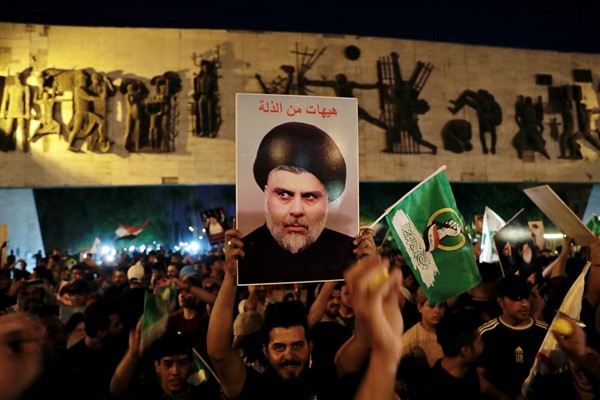Editor’s note: This is the web version of our subscriber-only weekly newsletter, Middle East Memo, which takes a look at what’s happening, what’s being said and what’s on the horizon in the Middle East. Subscribe to receive it by email every Monday. If you’re already a subscriber, adjust your newsletter settings to receive it.
Iraq has begun the long, tortuous and now-familiar process of post-election negotiations among the country’s powerful, mostly armed blocs, and the interregnum between the Oct. 10 parliamentary election and the swearing-in of a new government could potentially stretch into next summer.
The election results have made possible many important shifts in the country’s internal balance of power. But the risk of violence during the transition period looms large in a country where losing parties and factions have historically resorted to negotiating with violence and threats to destabilize the state. As a result, the likely outcome after months of negotiations and brinksmanship will be yet another national consensus government with a weak prime minister, allowing all parties—winners and losers—to share in the spoils of patronage and corruption while evading responsibility for Iraq’s failed governance.

